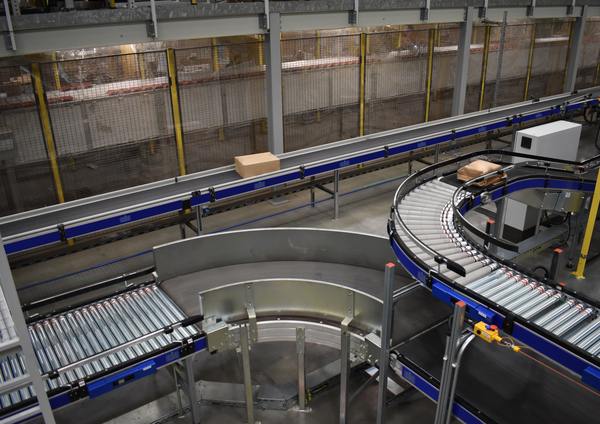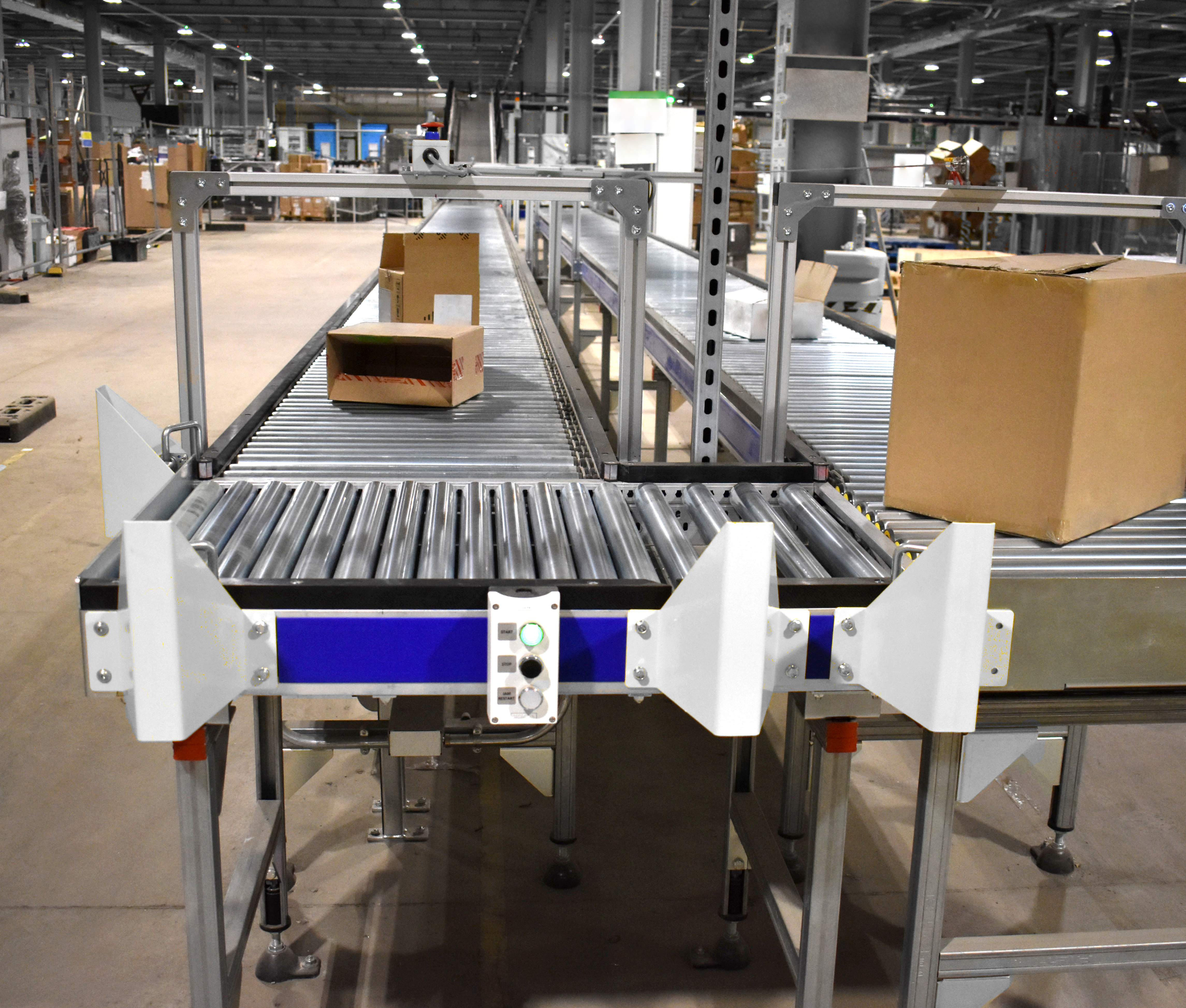The manufacturing and logistics sectors have experienced massive transformations over the years, and at the heart of these changes lies advanced material handling solutions. Rolling conveyor systems are vital components in streamlining operations across warehouses, production lines, and distribution facilities. This blog explores the importance of rolling conveyor systems, their types, and their applications, tailored for manufacturers in the UK.
What Are Rolling Conveyor Systems?
Rolling conveyor systems, also known as roller conveyors, are a type of conveyor system used to transport materials and products within a facility. These systems consist of a series of rollers that facilitate the movement of goods with minimal manual effort. They are incredibly efficient for moving heavy items and provide an essential component in the overall supply chain, reducing labor and speeding up processes.
Types of Rolling Conveyor Systems
-
Gravity Roller Conveyors
- Gravity conveyors are the most basic type of rolling conveyor system. They rely on the force of gravity or manual push to move products down the line. This cost-effective solution is ideal for transporting lightweight items or for use in order-picking systems in warehouses.
-
Powered Roller Conveyors
- Unlike gravity conveyors, powered roller conveyors are equipped with motors that automate the movement of materials. They are well-suited for medium to heavy loads and can handle higher production rates. These systems offer greater flexibility and precision in managing complex workflows.
-
Accumulation Roller Conveyors
- Accumulation conveyors are designed to collect items at different points on the conveyor line without causing damage. They are ideal for production lines that require a buffering system, helping manage flow and ensuring continuous operations.
-
Flexible Roller Conveyors
- Flexible roller conveyors are highly versatile, capable of bending and twisting to fit into the shape of different facilities. They are used in applications where mobility is key and are often seen in distribution centers or packaging lines.
Benefits of Rolling Conveyor Systems for UK Manufacturers
-
Increased Efficiency and Productivity
- Rolling conveyor systems streamline production and distribution processes. By automating material handling, they reduce labor costs, minimize manual errors, and ensure continuous workflow—all critical factors in boosting productivity.
-
Customizable for Specific Needs
- Rolling conveyor systems come in various sizes, roller configurations, and functionalities. They can be customized to meet the specific needs of different industries, whether it's automotive, food and beverage, or warehousing.
-
Reduced Labor and Operational Costs
- Automated conveyors significantly reduce the dependency on manual labor. By minimizing the physical workload on employees, these systems help decrease workplace injuries and related costs, ultimately leading to reduced operational expenses.
-
Enhanced Safety
- Safety is a crucial aspect of any industrial operation. Rolling conveyor systems are equipped with various safety features, such as guardrails and emergency stop mechanisms, to ensure safe handling of goods and materials. This reduces the risk of workplace accidents.
-
Versatility Across Applications
- From sorting and transporting to accumulating and order picking, rolling conveyors offer a wide range of applications across sectors. Their versatility makes them indispensable for various material handling needs.
Applications of Rolling Conveyor Systems
Rolling conveyor systems have found widespread use in numerous industries across the UK, including:
- Warehousing and Distribution Centers: Rolling conveyors are perfect for transporting goods between different areas, loading and unloading, and order picking.
- Manufacturing: They facilitate efficient movement of components through various stages of the assembly line, enhancing production speed and ensuring accuracy.
- E-commerce Fulfillment: In the fast-paced world of e-commerce, rolling conveyors help streamline order fulfillment and packaging, ensuring timely deliveries.
- Food and Beverage: Rolling conveyor systems are used to transport packaged goods and raw materials, providing efficient handling with minimal risk of contamination.
Factors to Consider When Choosing a Rolling Conveyor System
For manufacturers in the UK, selecting the right rolling conveyor system is crucial to optimize productivity and efficiency. Consider the following factors:
- Type of Goods: The size, weight, and material of the items being transported will dictate whether you need gravity, powered, or flexible conveyors.
- Space Availability: Consider the available floor space and configuration. Flexible rolling conveyors may be ideal for facilities with limited or irregular space.
- Throughput Requirements: High-volume operations may require powered conveyors for faster movement, while smaller-scale operations might benefit from cost-effective gravity conveyors.
- Industry Requirements: Different industries may have unique requirements such as specific hygiene standards (for food and beverage) or load-bearing capacities (for automotive).
Future Trends in Rolling Conveyor Systems
With the rise of Industry 4.0, conveyor systems are rapidly evolving to include smart technologies. Rolling conveyors are now being integrated with sensors, IoT devices, and AI-based systems to improve their efficiency and enable predictive maintenance. Automation is driving the future of logistics, with conveyor systems playing a crucial role in achieving fully integrated and connected manufacturing environments.
Furthermore, sustainability has become a focus in the UK, with many manufacturers opting for energy-efficient conveyor systems that reduce power consumption. The development of electric-powered conveyors and advanced motor systems is helping companies reduce their carbon footprint, aligning with broader environmental goals.
Conclusion
Rolling conveyor systems are an integral part of manufacturing and distribution operations for UK manufacturers. With options ranging from gravity to powered conveyors, these systems provide a flexible and efficient solution to improve productivity, reduce costs, and enhance safety. As industries embrace automation and smart technologies, rolling conveyor systems will continue to play a pivotal role in driving growth and innovation across various sectors.
Whether you are looking to streamline your operations, reduce labor costs, or prepare for Industry 4.0, investing in the right rolling conveyor system can make all the difference. For manufacturers in the UK, choosing the right partner and product will be key to future-proofing their facilities and staying competitive in an evolving market.






